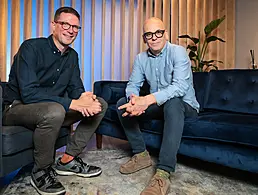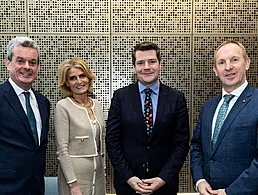Job interviews are hard enough without having to explain a gap in your CV – but it doesn’t have to be a bad thing.
If you have an interview coming up, you’re probably thinking about all the experience you have and how it might be relevant to the new role. You’ve probably prepared an answer for every aspect, explaining what you did and what you learned.
But as the recruiter scans your CV and follows the dates, they spot a gap and ask about it. Suddenly, you don’t know what to say.
A CV gap could be there for a number of reasons. You might have taken extended leave to look after your children, you might have needed a break for health reasons, or you might have just left one job and taken some time out before going back to another one.
Whatever the reason, you may not feel comfortable sharing it. Even if you do, how can you explain it without putting off potential employers?
Mind the gap
Career coach Jane Downes said that for the most part, honesty is the best policy. “Most research shows that a hiring manager notices a gap in the career history section of a CV but if that gap is not explained, they are likely to deduce that the applicant is less honest than the average person, and this could raise question marks.”
Downes also advised adding it to the CV as part of your experience, by treating it as a job role and wrapping it up with start and finish dates.
“Being career smart in today’s knowledge economy means recognising the importance of strategic CV construction. Get this bit wrong and you can kiss that call for interview goodbye. It’s that simple.”
Downes said it’s OK to fill your CV gap in by saying: ‘Took time out to reassess next steps and undertake training post-redundancy’ or ‘Career break to travel’.
“Employers respect if you have travelled before applying to work for their organisation,” she said. “It may show you have a sense of independence and cultural awareness, and now you are ready to settle down in your career.”
She also advised that jobseekers should highlight any skills they learned during their CV gap, be they formal qualifications or informal soft skills.
“Your focus needs to be on the skills that you developed or gained during this break in employment. These skills are valid and add value to the workplace.”
Be honest but unapologetic
For jobseekers who are worried about gaps that took all their focus and didn’t give them an opportunity to upskill, these should still be mentioned without fear of stigma.
“Taking time out to have children is fine. Make no apology for that,” she said. “This is a common occurrence in the workplace, so there is no need to try and cover it up. However, it would be worth mentioning that your children are now in full-time education or childcare, letting employers know that you no longer have care duties and are absolutely ready to return to your career.”
Downes also said highlighting that you were unwell is perfectly fine, “once you are fully better now and fit to return to work”.
Multiple gaps
An explained gap or two is fine, but when your CV has more than that, concern starts to set in. Downes said that this is where the structure of your CV can really come into play.
“A functional CV focuses on skills and achievements. The majority of the CV is used to provide examples that support a specific skill set, with academic qualifications and employment history summarised and cut down. By structuring your CV in this way, gaps in career history stand out far less to the hiring manager.”
Downes said that it constantly surprises her how little attention jobseekers give their CVs. “Your CV needs to convince a prospective employer that you understand your field and ultimately, the role you are applying for.”
She said it’s important to ensure your CV gap plays to your strengths where possible, and you should be prepared to discuss the gaps with confidence. “You will want to show a calmness and clear narrative at interview for this.”




